By John Helmer, the longest continuously serving foreign correspondent in Russia, and the only western journalist to direct his own bureau independent of single national or commercial ties. Helmer has also been a professor of political science, and an advisor to government heads in Greece, the United States, and Asia. He is the first and only member of a US presidential administration (Jimmy Carter) to establish himself in Russia. Originally published at Dances with Bears
Listeners to US Government radio and readers of the London papers are being told that Kaliningrad is a Russian dagger pointed at the soft underbelly of the NATO alliance in central Europe. According to NATO sources, the dagger must be reversed so that it threatens the Kremlin instead.
Officials in the German Chancellery in Berlin and in the Polish government in Warsaw have begun asking their intelligence chiefs to prepare memoranda on how vulnerable the Russian outpost, formerly Königsberg in German East Prussia, is to a campaign of economic pressure and political subversion. Does this make Kaliningrad a potential flashpoint on the eastern war front, the next Crimea?
In June NATO forces simulated an air, sea and land attack on a Polish beach less than 100 miles west of Kaliningrad. Preceded by press briefings by US officers and NATO handouts, Operation Baltops deployed “a total of 49 ships, 61 aircraft, one submarine, and a combined amphibious landing force of 700 U.S. Finnish and Swedish troops… Fourteen NATO Allies are joined this year by NATO partners Finland, Georgia and Sweden. Overall, 5,600 troops will be involved.” Rehearsing the beach landing at Ustka, Poland, on June 17, a landing on a Swedish beach was attempted on June 13. The two operations omitted to include or simulate opposition forces defending the beachhead. Still, a Polish amphibious transporter sank, obliging the troops to wade ashore. Noone shot himself or drowned; several caught colds.
The London Guardian called the Ustka beach attack “a major show of strength.” A US Naval Institute report said “it serves as a crucial reminder that while much of the U.S. and NATO reassurance measures in Europe to date have been ground based (with U.S. and European units fanning out across the Baltic States, Poland, Romania, and elsewhere), an effective response to Russia’s new aggressiveness must also come with effective and credible maritime components.”
Lieutenant General Ben Hodges (right), commander of the US Army Europe, told journalists assembled to watch Baltops: “Nato is not threatening anyone. Nato has no quarrel with the Russian people. We do have a quarrel with Putin, or Russia, trying to change borders by force…One of the things that concerns me is the amount of capability that the Russians have put into Kaliningrad. They have the ability to deny access up into the Baltic Sea through anti-ship missiles. They recently did an exercise where they put in an Iskander missile there. That is a range of 300km, a nuclear-capable system which could easily range Riga.”
Hodges claimed Baltops was intended to demonstrate NATO’s capability to attack Kaliningrad and bottle up the Russian Navy further east in the Baltic at St. Petersburg. For more on NATO’s strategy to block the opposite, western end of the Baltic at the Danish Straits, and the Russian response, read this.
The US Government organ, Radio Free Europe/Radio Liberty, reported the day after the NATO landing that “Russia is pouring troops and weapons — including missiles capable of carrying nuclear warheads — into its western exclave of Kaliningrad at such a rate that the region is now one of Europe’s most militarized places.” RFE also reported “a NATO official writing to RFE/RL on condition of anonymity [to claim] that Moscow is stationing ‘thousands of troops, including mechanized and naval infantry brigades, military aircraft, modern long-range air defense units and hundreds of armored vehicles in the territory.’ A Pentagon think-tank expert was quoted as saying: “From Kaliningrad you can just go right out and you’re there; there’s Sweden, Poland, Germany’s not that far away. So, it’s almost like you can set it up as a forward-operating base without leaving your own country’s territory.”
For a US-sponsored comparison of scale and purpose, consider this assessment of the 70,000-man Russian military exercise Zapad-2013, launched from Kaliningrad and other points in Russia’s Western Military District. According to Pauli Järvenpää (below, left), a Finnish military planner, for the Kalinigrad part of the exercise “the major troop formations involved the 79th Detached Guards Motor Rifle Brigade, the 7th Detached Guards Motor Rifle Regiment, and the 336th Detached Guards Naval Infantry Brigade. Also during this phase of the exercise, a major amphibious landing took place… To support the exercise in Kaliningrad, there were naval maneuvers and live missile firings from ships in the Baltic Sea to block off the terrorist elements and their reinforcements. The Russian naval elements were also active in the Barents Sea, practicing “wolf-pack” salvos of missiles by ships and submarines against the enemy. An interesting detail is that there was a small exercise on September 26 in Kaliningrad depicting combat in urban environment.”
Glen Howard (above, right), president of the Jamestown Foundation in Washington, claimed “the very same troops that took part in the Zapad-2013 exercise just a few months before—according to Russian sources, roughly 150,000 of them—were put on a high alert in a ‘snap combat Exercise’ while the Ukrainian crisis was first developing. Russia’s annexation of Crimea earlier this year and the forces Moscow used in its operations across southeastern Ukraine possessed the same sets of capabilities and skills practiced in the Zapad-2013 exercises.”
Influential German sources claim there is fresh interest on the staffs of Chancellor Angela Merkel and Foreign Minister Frank-Walter Steinmeier in whether the Kremlin is planning to use Kaliningrad as a springboard for launching Crimean-type green men or Donbass-type volunteers across the Polish and Lithuanian borders; and if so, how to combat them. For the time being, the Germans are keeping shtum, compared to the Americans.
Last May a Pentagon-backed study by CNA analysed the script for “ambiguous warfare.. this brand of warfare involves rapidly generating highly trained and disciplined forces who enter the battle space out of uniform and, in coordination with local supporters, utilize psychological operations, intimidation, and bribery to undermine resistance.” According to CNA, “the three small Baltic Republics, formerly part of the Soviet Union and home to sizable populations of Russian speakers, are potential next targets.”
The Swedish Defence Research Agency (FOI) has been writing scripts of its own along similar lines, publishing them to catch Swedish media attention, along with requests for state money to produce more. According to an FOI paper of June 2014, “one country at a time is likely [to be targeted], since top-level political and military coordination is needed. Furthermore, any on-going operation absorbs DIME-resources [DIME = diplomatic, intelligence, military, economic] that cannot be used elsewhere. Azerbaijan, Belarus, Kazakhstan and mainland Ukraine—all bordering Russia—risk (partial) illegal annexation.” Kaliningrad and its immediate neighbours, Poland and Lithuania, weren’t mentioned by the Swedes.
Source: http://www.osw.waw.pl/sites/default/files/prace_41_en_0.pdf
To the Russian ear this sounds exactly like the script followed by US forces in Kiev, when President Victor Yanukovich was toppled in February 2014. At present, when Russian military analysts in Moscow predict where they expect the war over Ukraine between the US, NATO, and Russia to move next, they point westwards, to Transnistria and Moldova on the Black Sea. What are the Kremlin’s new red lines in the post-Soviet space? — asks one of the Moscow analysts, Sergei Markedonov. In his answer he ignores Kaliningrad and the Baltic states.
In Warsaw, Polish politicians – now campaigning for the October 25 election – are in two minds. Radoslaw Sikorski took an active role in the overthrow of the Ukrainian government in 2014, and in subsequent efforts to escalate military confrontation along Russia’s borders. But he has been sacked from his posts as foreign minister, speaker of the Sejm (parliament), and front-runner on his party’s election ticket. By contrast, since his ouster, the newly elected President Andrzej Duda has appeared to backtrack on Sikorski’s adventurism, while calling for NATO investment on Poland’s eastern frontier.
“We do not want to be the buffer zone”, Duda (right) told the Financial Times in mid-August. “We want to be the real eastern flank of the alliance. Today, when we look at the dispersion of bases . . . then the borderline is Germany. Nato has not yet taken note of the shift of Poland from the east to the west. Nato is supposed to be here to protect the alliance. If Poland and other central European countries constitute the real flank of Nato, then it seems natural to me, a logical conclusion, that bases should be placed in those countries.”
The Financial Times has kept repeating its interpretation that Duda wants NATO bases on the eastern front. But Duda himself hasn’t said so. He evaded the issue during his state visit to Germany last week, and in Estonia a few days earlier. In Berlin he rebuffed a German proposal that Poland take in more of the African and Middle Eastern refugees now pouring into Germany. Duda reminded the Chancellery that the war with Ukraine has already triggered a larger refugee flow than Poland can accommodate. “The Polish president explained that his country had taken in ‘thousands’ of people fleeing the conflict in eastern Ukraine: He added that any escalation in that conflict could cause a ‘large number’ of others to head west from Ukraine.”
Duda has also been reported on Polish state radio as recommending that Europe demand that Russia return Crimea to Ukraine. He’s not saying as much for Poland. Nor has he said a word, yet, about the status of Kaliningrad, or the movement of Russians across the Kaliningrad border, within the 50-km visa free zone in Poland introduced by Sikorski in 2011.
A touchstone of Warsaw’s current thinking about Kaliningrad is the case of Victor Bogdan, the former head of the amber business in Kaliningrad and one of the region’s most influential business figures. He had crossed swords with the Governor of Kaliningrad, Nikolai Tsukanov – like Bogdan, a a Kaliningrad native, with a strong local patronage network; Tsukanov is running for re-election this month. He has arranged for Bogdan to be charged with tax fraud; ordered the police to seize his gem stockpile; and is attempting to put his own trusties into the amber business. The Kremlin has also taken against Bogdan in circumstances at least as corrupt as those alleged against Bogdan. For details, read this report.
Bogdan’s Polish lawyer, Jacek Potulski, said this week that he and Bogdan are waiting on a decision by the Polish Justice Minister on whether to accept the lower and appellate courts’ agreement to a Russian extradition request. “Generally [the minister’s decision] takes about a year. That would be June 2016. It doesn’t depend on the [Poilish] election”. He added that Bogdan will decide shortly whether to file a fresh challenge to the Kaliningrad prosecutor;s charges in the European Court of Human Rights.
Until the Kiev putsch of February 2014, followed the next month by the Crimean accession, transformed US and EU thinking towards Russia, the most constant indicator of “western” strategy towards Kaliningrad has come from the Warsaw think-tank, the Centre for Eastern Studies (right) – in Polish, Ośrodek Studiów Wschodnich ( OSW). This is funded by the Polish state budget and directed from the Polish intelligence services. The catalogue of OSW public-access reporting on Kaliningrad can be read here. The dossier reveals just one attempt at a comprehensive analysis of Kaliningrad’s situation. Published in July 2012, there has been no follow-up — no attempt by OSW to bring the political, economic or military issues up to date.
The tone of the 77-page report was conciliatory, cooperative, flexible towards Russian rule in Kaliningrad. For example: “This region will remain surrounded by the EU, and it will still share numerous practical issues with its neighbours which need to be resolved together, for example in the area of ecology. Developing the oblast and bringing it up to living standards similar to those in the neighbouring EU member states would contribute to building a stable and safe neighbourhood for the EU, something which is especially important.” As a measure of Polish strategic thinking at the time, the OSW report is noteworthy for what it doesn’t do – it doesn’t promote the idea of Kaliningrad as a “dagger”, let alone a security threat to Poland.
The OSW report is also clear that the public demonstrations in Kaliningrad of 2009-2010, leading to the ouster of Governor Georgy Boos (below, left), were limited in their ambitions, non-separatist in character, and well handled by the Kremlin and the successor governor, Tsukanov (right).
“As a consequence of the higher social activity of Kaliningrad’s residents and their aspirations inspired by contacts with the international environment, the significant deterioration of the living standards in this region in 2009 gave rise to public protests. The direct catalyst for the protests were Governor Boos’s decisions, for example increasing the rate of the transport tax several times, which adversely affected most people in this region. The protest consolidated the regional political and business elites and the public. At that time, they were the most numerous protests on the scale of Russia as a whole in a decade (up to 10,000 people participated in them). Their participants were the first to use anti-Putin slogans (for example, they appealed for the dismissal of Vladimir Putin’s government). However, it turned out later that the residents’ dissatisfaction was fuelled mainly by local problems.”
If OSW can be taken as a guide to current thinking towards Kaliningrad in the Polish security establishment, there is no appetite in Warsaw for schemes to stir internal opposition in Kaliningrad, let alone deploy troops in the border zone, or launch agents provocateurs of the type Sikorski and the Polish secret services were training for Ukraine for at least a year before the Kiev coup. Also, Polish strategy currently accepts Kaliningrad’s Russian status as legitimate, and is wary of destabilizing the frontier area, turning it into a Ukrainian-type flashpoint.
The concentration in Warsaw is on defensive measures to be taken on Polish territory. For example, from this March report from OSW: “The concept of so-called ‘hybrid conflict’ is a combination of conventional warfare using state-of-the-art technology (e.g. precision strikes against critical infrastructures, special forces operations) and indirect/non-military actions (no declaration of war, the use of armed civilians, avoiding clashes with the opponent’s regular armed forces, information warfare).[1] Russia might use the presence of large Russian-speaking minorities in the Baltic states as a pretext to interfere with their internal affairs, which increases the possibility of hybrid conflict in Estonia, Latvia or Lithuania. Russia could initiate such a conflict by instigating separatism, supporting protests staged by sections of the Russian-speaking community (e.g. over the status of the Russian language), sending groups of armed individuals wearing unmarked uniforms across the border, organising acts of sabotage against critical infrastructures, staging provocations with an ethnic or cultural background, undertaking actions aimed at disrupting the operation of public administration (e.g. cyber-attacks on government servers) and conducting disinformation campaigns. It is increasingly likely that Territorial Defence Forces could serve as an element in in preventing hybrid conflicts. The Swedish model is a classic example …”
Warsaw political analyst Stanislas Balcerac comments: “Poles appear to be more concerned about the autonomous movement in Silesia [western Poland] than they are about Kaliningrad being either Russian or German. Sometimes I have the feeling that Poles do not realize that they have a direct 200 kilometre (or more) border with Russia. They seem to be more concerned with the economic power of Germany, and with the fact that a significant chunk of the Polish press is already in German hands.”
German sources concede that as a legacy of World War II, the status of the former German province of East Prussia is as sensitive to the Poles as it is to the Russians. Some Germans believe that if tension with Russia can be reduced, the Kremlin might be willing to trade Kaliningrad back to Germany. The idea that the Russian military have regarded (and may still regard) Kaliningrad as a non-strategic bargaining chip is based on the so-called Batelin “offer”. First reported by Der Spiegel in May of 2010, then amplified by US Government media outlets, the notion is that in July 1990 General Geli Batenin (then a missile specialist on the Soviet General Staff) told a German diplomat in Moscow that the Soviet Government might be willing to discuss a change of status for Kaliningrad. There have been interpretations in the west that this was a type of “Alaska sale offer” on the part of the desperate, cash-short Politburo. But Soviet officials, including Mikhail Gorbachev, have categorically denied it.
The German assessment at the time was that the Batenin offer was a ploy, and perhaps a trap for splitting German from American and from European Union (EU) tactics for dealing with Moscow. What’s more certain now is that Kaliningrad is viewed by both Russia and the EU as a touchstone – also weathervane – of the larger Russia-Europe relationship. If there is a benign relationship and flexibility, then there can be concomitant flexibility in the cross-border relationships between the Kaliningrad, its EU neighbours, and its Baltic neighbours, especially Poland, Germany and Sweden. Common-focus problems can then be considered cooperatively, such as pollution of the Baltic Sea; visas and visa-free travel; electricity transmission, etc. But if there is tension, then Kaliningrad will reflect it with increased militarization. If the Batenin “offer” had been a genuine one, not a ploy, then there would have been far more attention in both the US and European strategy-making towards Kaliningrad in the years which followed. This did not happen.
There is no reference to Kaliningrad in Zbigniew Brzezinski’s (right) blueprint for American global dominance titled The Grand Chessboard. On his map of Europe, Brzezinski calls Russia a “black hole” between Germany and China. On the Russian side there was comparable silence and disinterest during the 1990s. In Jonathan Haslam’s history of Soviet strategic thinking, Kaliningrad fails to draw a single mention. Not even during the strategic debate in the 1980s over intermediate range nuclear weapons in Europe, the so-called SS-20 versus Pershing contest, was Kaliningrad regarded by either side as a strategically significant point on the map for projecting the kind of Soviet threat against Europe which the missiles represented; or the kind of defence and retaliation now attributed to the basing of mobile Iskander missile units at Chernyakovsk, in the Kaliningrad region.
That leaves the US and NATO to promote subversion inside Kaliningrad. The first deployments are of the green men and volunteers known by their western cover as investigative journalists. In Kaliningrad’s case, it has been targeted by SCOOP, a journalism centre funded by the Danish and Swedish governments and by the Soros foundation, based in Copenhagen. Here’s SCOOP’s funding. And here’s the SCOOP dossier on Kaliningrad, most of written by Nikita Kuzmin. Note that SCOOP is currently advertising for more Russian reporters to work on this region. What SCOOP is doing is to finance Russian reporters like Kuzmin, then translate their stories from their Russian outlets into English, and ensure that they receive amplified attention. This is coming principally from Radio Free Europe/Radio Liberty, the US propaganda outlet, and from individuals who worked in Russia under press cover. Typical of the exaggerated mix of rumour, false-flagging, and fabrication which the RFE/RL dossier compiles on Kaliningrad is this claim that NATO military exercises in the region are testing schemes for capture of Kaliningrad. “Childish pranks and petty vandalism to be sure, but also signs of our dangerous times,” reports Brian Whitmore, a former reporter for the Moscow Times. “We’re certain to see more of this kind of thing for a while — as well as more menacing gestures.” Whitmore is also predicting that Kaliningrad is the place to test whether “the regime is on the rocks… last weekend’s vote in Kaliningrad shows that they are far from invincible.”
There have been other attempts, also confined to US outlets, which pinpoint Kaliningrad as the source of Russian fleet deployments to Syria; maritime espionage, as well as sewerage, aimed at Sweden; kidnapping in Estonia; gun-running to Iran and other anti-western groups in the Middle East, and so on.
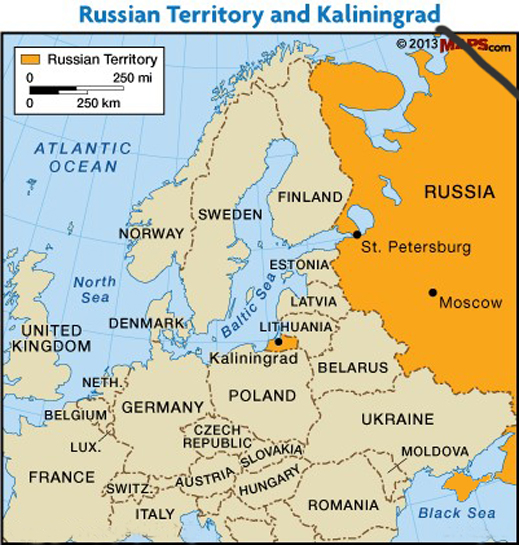
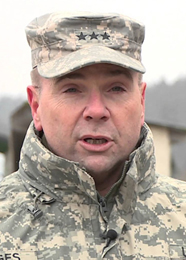

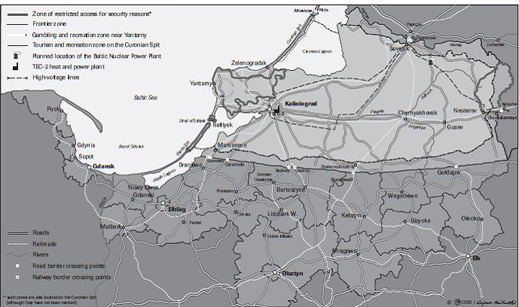
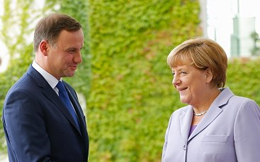
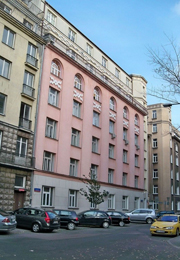
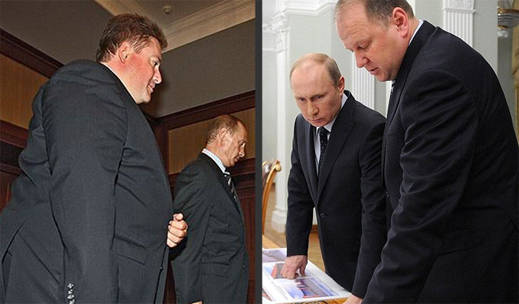
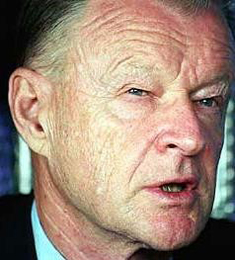


Tinfoil hat theory. Meanwhile, people living in Kaliningrad area wonder how come their standard of living is so much worse than the neighbors’. Unlike others in Russia they have comparison and see that Russia is a banana republic with nukes.
http://youtu.be/D58fHJgPeKI
500 million EU citizens plus two nuclear powers.
150 million Russian citizens.
Yawn. If Europe or even just France and Germany can’t figure out how to avoid Russian domination, they should just hold welcoming parades for their Russian overlords.
Sorry, but there is a hidden assumption in there. We cannot treat the European Union as a monolithic bloc. It is, at best, a Confederacy, with all the problems that come with that form of governance. The Southern Confederacy failed in part because of internal frictions. (The individual state militias were as big as the armies in the field. Imagine what Lee or Longstreet, not to mention Jackson, could have done with an extra few divisions at their disposal.) America quickly jettisoned the Articles of Confederation in favour of the more unitary Constitution. These examples occurred in a region with one dominant language and a short history of separate governance. Europe? Multi lingual, multi instrumental, multi religious, in short, fractious.
Two nuclear powers, yes, but ask, is that old joke about the Force de Frappe perhaps true? (In the joke, a “Foreign” dignitary is shown the command bunker for the French nuclear forces. He wonders at the big map on the wall. What are these red pins doing all over the place? His guide explains; some are targeted at Russia, some at China, (for forms sake,) some at Les Anglais Perfides, (everyone knows about that,) some at Germany, (never trust a boche,) the last small cluster, well, Paris? “Sir, this is France, after all!”)
Interesting that the Russians, for their own military purposes – the harbors at Kaliningrad – withheld old Konigsburg from repatriation to Germany when the wall fell. East Prussia. And then used it as a bargaining chip politically. Russia recognizes the importance of Germany, strategically. Which is why the West is so freaked out about all the diplomacy between Germany and Russia. Their alliance could form the next superpower. And Brzezinsky is no doubt contemplating Poland once again being caught in the middle.
…folks in rural Mississippi probably muse similarly.
Twas always so. Indeed, we mused so much that we fell in with this Secession business when Ol Massa proposed it.
We’ve got it better than Konigsberg I think. True, we are alike in both being garrison states, but we have revenue being sent from the more prosperous parts of America to help with our shortfalls. Mississippi is a net importer of tax monies. Konigsberg? I don’t know.
So is the US. Except saying so in polite company is verboten and is rapidly becoming a thoughtcrime.
‘Polite Company’ covers a multitude of sins.
I’m for renaming the Signals Intercept Office “Kempeitai.”
Amazing how much public money goes to trouble making organisations, like NATO. The more trouble they cause, the more money they get.
Russia has always had a strategic need for “warm water” ports, in effect ports that don’t ice up completely in winter, for their navy. That is the basic reason for the more or less popularly agreed to annexation of the Crimea. Given that, I don’t see Russia giving up Konigsberg any time soon.
The ‘regime change’ Green Men strategy only goes so far when one tackles an administration as hard headed and potentially bloody minded as Russias’. Beware what you ask for. Russias’ Konigsberg enclave might not be the Workers Paradise, but neither are the surrounding neoliberal cursed “democracies.”
The real problem is that there is too much money in waging war – and the masses pay for it all. So it goes on endlessly. Even to the point where these nutcases want to induce conflict for profit. I mean its an insane amount of money, on a planet where even in rich countries there are children that go to bed hungry every day:
https://en.wikipedia.org/wiki/List_of_countries_by_military_expenditures
We need to apply to warmongering industry, the same “austerity” that the common man is being subjected to. At which point they would actually consider war as a last resort and not a first resort. Maybe even communicating and negotiating like civilized human beings – aka “diplomacy” – would be considered worth doing.
But first remove all the money from it.
Now if you are waiting for any political “leaders” to force a govt shutdown on the basis that we are spending too much on warfare, well good luck. The are only interested in shutting down jobs in post offices, libraries and schools.
The games that are being played behind our backs makes it hard to know what is really going on. It seems that our side is hell bent on convincing us of the need to go to war. At the very least, each action by either side is causing the other side to escalate. This cannot be good. Is there a way to stop the escalation?
“There have been other attempts, also confined to US outlets, which pinpoint Kaliningrad”
A quick Google search turns up… nothing…
Well there is this:
“A project is being implemented in Kaliningrad for the year-round cultivation of strawberries…”
Must be in code or something.
The polar ice cap is melting. We just had the hottest summer in recorded history on the West Coast of the U.S. and are in extreme drought with widespread massive forest fires and dust storms. There has been mortality and damage to marine life in the Pacific, three hurricanes concurrently active in the central Pacific last week, etc. A coordinated international response to the pressing issues presented by global warming and ocean acidification should be at the top of both domestic and supranational political agendas, not more of this crap which has led only to chaos, death, and mass refugee migrations.
Maybe these clowns can all gather in Geneva and play Risk, Stratego, Chess, or Texas Hold’em to satisfy their craving, then go out together for some fondue or something. They have much in common.
This part of Germany is the perfect location for the Germany bound refugees fleeing for their lives from Syria, Libya and other points of war ravaged North Africa and the Middle East. The warm hearted Russians can’t pass up this humanitarian coup to show NATO what hospitality really looks like in aid of the weak and defenseless. So much land and so few people, Russia has a once in a century opportunity to throw its borders in and let the milk of human kindness nurture those hungering for a better life. Come on Putin, do your share of carrying the burden of humanitarian relief.
“Come on Putin, do your share of carrying the burden of humanitarian relief.”
If I remember correctly Putin was against bombing Libya. So how about the USA which was so inspirational in this conflict “eating your own dog food”. May be we can modify your suggestion to shipping a hundred thousand or two to the USA using Russian ships (as a humanitarian assistance).
The kiss asses always amaze me on this site. The latest outrage of fleeing humanity is the Syrians, with pic of the corpse of the little boy carried from the beach where he washed up on. Syria is vomiting up its war horrors on the rest of the world and they are the #1 Arab ally of Russia, who have armed them to the teeth for decades. Russia and Syria, perfect together. So I say again, to you and Russia, how about shouldering your share of humanitarian relief on the people of the nation you have stood by for so long. Your tanks and advisers have not saved then from ISIL, civil war, or much anything else. Maybe refuge, shelter and food for the fleeing refugees. All of the Arab nations have played USA against USSR/Russia for years. Now Russia seeks united front against ISIL. Who will you sniff out for petty anti-American comments when Putin and Obama bomb and pink mist enemy and collateral damage hand in hand together? It will be so confusing to try to put someone in their place when the blood is all over everybody hands up to their elbows!
http://www.rt.com/news/314010-syria-russia-planes-isis/
Russia has accepted more than 1 million refugees thus far from Ukraine. I’m not sure how many you think should be added to this.
http://tass.ru/en/russia/812040
America has 11 million Mexican refugees, I’m not sure how that could possibly escape you, another Russian ass kisser.
And where, pray tell, are the refugee camps? The Smithfield slaughterhouses and the Organic Valley farms? Yeah I know, I am another Russian ass kisser.
Let me make it real easy for the ass kissers to understand.
Russia is one of the richest nations in the world, with 1/2 the poverty rate of the USA. Just last year, the Olympics were held in Sochi at a cost of $40-50bil. The city has the capacity to host 160,000 weekend visitors to auto racing. Oh yea, it is the biggest nation in the world. I’ll go and google it’s size so I am not just blurting out change the topic hostilities, which is the tell of all kind of ass kissers.
I’m back-17 million sq mi twice the size of Canada, or China or USA individually.
In addition to having ready made facilities, a $2Tril economy, vast amounts of land, the sponsor of Syrian military and the government for decades, Russia has been drowning the world with AK47s for decades sponsoring proxy wars of liberation in a contest with the USA over hegemony. They lost their bid for that crown. But their legacy of leaving vast amounts of military ordinance behind for arm traders to collect and distribute to whoever is a major contribution to the warfare plaguing the North African/Middle East Arab world.
To repeat, I am calling on Russia, in the top ten biggest economies, with a recently built Olympic city that can handle crowds of at least 200,000 for housing and food and a long standing relationship with the nation of Syria, sophisticated enough to partner with the US in diplomatically disarming Syria of chemical weapons and participating in the Iran diplomatic accords to halt nuclear proliferation in the world as part of the permanent UN Security Council members to use its wealth and influence to offer refuge and shelter and all other humanitarian aid in an urgent intervention of an immediate crisis of staggering
suffering.
The US can absorb 11 million Mexicans fleeing drug cartel violence, drought and Nafta ruination of busted out farmers forced off their land by too cheap to compete with American corn and other food imports. All of the EU, including the UK, Italy, FRance, Germany among others are being called to provide aid for the massive scale human calamity. Russia, is wealthy enough and prepared enough to do much more right now and is closer to Syria than other countries. I could not see the Greek government doing much other than little to enable the safe passage through their nation to Russia, Germany or other capable nations.
Calling on Russia is not an attack on Russia vis a vis the USA. It is a recognition of an immediate crisis that they can do something about. If Putin wants more respect in the aftermath of the Soviet Union collapse, this is certainly one more way, along with Olympic conspicuous consumption to achieve that geo-political goal. The commentators who change the subject from demanding Russian participation to the shortfalls of the USA on the world stage just reveal their bitterness against America, and not show any compassion to the original demand to Putin to shoulder his fair share of humanitarian aid, aside from anything else they may be doing with Syria or anyone else in the world. Russia can walk and chew gum as well as the USA I’m sure, but not unless someone starts to demand more from them. Well, here I am, demanding more from the Russians. Yeah, 1mil Ukrainians are being helped out, but guess what, now there is another crisis with another million suffering people. Time to step up to the challenge and not change the topic to migrant farm labor in America or how busy they are with the Ukraine. Mr. Putin, you want to be a great leader? Then perform great deeds that burden you beyond what you are doing now.
I suppose those humvees that ISIS is driving are Russian made…
Done both of these already. Where the faack have you been these past three years? For someone who claims to not have his nose stuck up someone’s ass, you sure do miss lots of happenings.
You break it, you own it. Russia warned the US not to break it, the US and its Euro lemmings broke it anyway. Why should Russia pick up the costs of others’ hubris, particularly since the US doesn’t?
Much like the one in Ukraine? Other than weapons and Vicky’s cookies, what has the US done to fix the humanitarian crisis it started?
I am in position to demand better from America, because I am an American. I am not Russian. Hell yeah I am bitter. I did spend some time in that sandbox, and for what? Dick Chaney’s Haliburton dividends, apparently. And why should anyone pick up the costs of US’ follies as it merrily travels on the path of terminal decline?
You are he one who brought it up, pal.
Shouldn’t you be demanding this of your Nobel Peace Prize laureate that’s in the Oval Office? A good start would be to stop blowing up weddings, arming “moderate islamists”, and stop brewing up Arab Springs and Maidans and revolutions of assorted colors with our tax money. Let’s fix our own house before worry about anyone else’s
@Paul Tioxon, OIFVet just ripped your absurd arguments to pieces. Unfortunately FOX force-fed propaganda views, albeit full of exciting hyperbole, leave you looking ignorant in a forum where others actually read extensively.
We could always settle them in the West Bank. Reunite that with Jordan and get the Jordanians to form a Government of National Unity with a Constitutional Monarchy, (if they haven’t already done so.) The valley would be the perfect Middle Eastern melting pot: Palestinians, Druze, Samaritans, Syrians, Bedu, Yazidi, you name it. If things get tough, make it a U N Mandate directly ruled from Geneva. Another idea is to have Iran become the Mandatee for Syria. Let them give up some territory to an official Kurdistan in exchange for hegemony in the region. Since the Turks appear to be reinventing themselves yet again, Iran, being once an integral part of the Ottoman Empire can step into the role of strong man of the Middle East.
All this though, is an exercise in futile wishing; exactly like Western policy in the Middle East since at least the First World War. No one has yet let the locals make their wishes known, much less carried out. There is more than enough blood to go around.
serious lack of understanding the relationship.
Grace Alexandra Earick, Aug 17
the tsarina
let’s try this:
tsarina Grace Alexandra Earick; Aug 17
Jeez that article was mouthful. Bit much with football season here.
So what’s the punch line? The Russians are coming?
First the steal the West’s strategic asset, Ukraine. All of our Ukuleles are made in Ukraine. Then on to Moldova – limburger cheese capital of world. Then Poland – but Poland has been having second thoughts about entering the EU anyway, so maybe they deserve it. The ultimate prize being Kaliningrad. That sorta makes sense. They have really tasty meatballs there.
I imagine the Russians have the good sense not to move around North Eastern Europe in the winter time. That has proven to be bad military tactics in the past. So maybe we won’t get interrupted during football season and can put it off till baseball season is here.
Baby boys should be castrated at birth, then we wouldn’t have all these aggressive men always wanting to fight each other.
I see. Temporary difficulties prevents showing such a hospitality to displaced by US bombs people from countries destroyed by US neocons.
As Harvard University economist Lawrence Katz noted:
=== start of the quote ===
Think of the American economy as a large apartment block. A century ago — even 30 years ago — it was the object of envy. But in the last generation its character has changed. The penthouses at the top keep getting larger and larger. The apartments in the middle are feeling more and more squeezed and the basement has flooded. To round it off, the elevator is no longer working. That broken elevator is what gets people down the most.
=== end of the quote ===
BTW are you, by any change, a relative of Victoria Nuland?